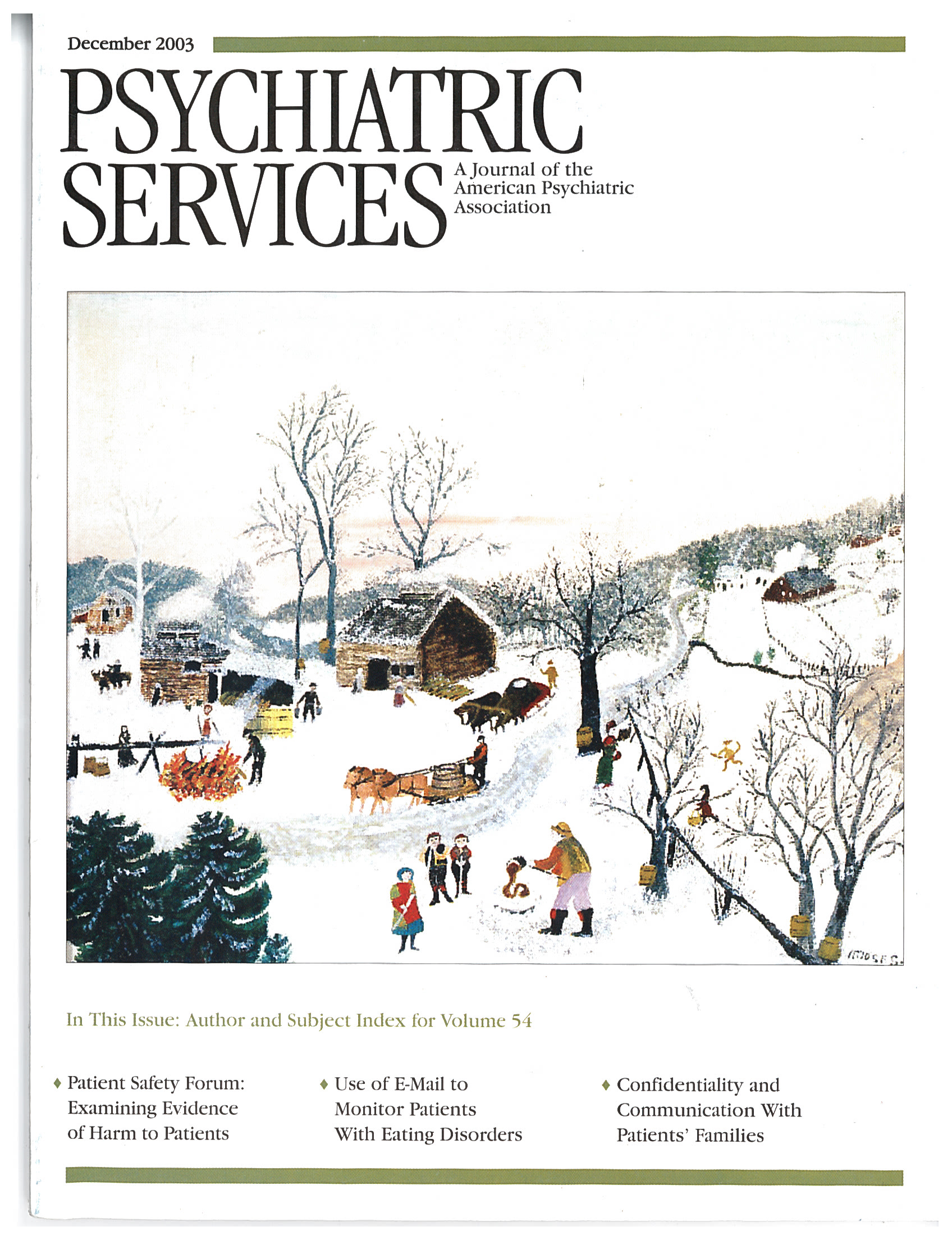Novels by mental health professionals risk collapsing into case studies in which the literary notion of character is reduced to a character disorder or some other form of psychopathology. William Lloyd Roller is an accomplished clinician and group therapist, as demonstrated in an earlier book about the place of group therapy in managed health care (
1). He is also a fine fiction writer and chooses, in
The Dead Are Dancing, to present this timely and fascinating exploration of violence and patriotism in the American psyche through the lens of a novelist's artistry.
Billy Richcreek grows up in a small Illinois town where war veterans, guns, and patriotism form the core of working-class culture. Billy becomes a crack marksman as a child on his father's backyard shooting range, but after witnessing his father shoot his baby sister in a fit of rage against his mother, his life changes. He wins celebrity as a high school football legend. As the Vietnam War evolves, he has second thoughts about the violence that permeates the Heartland. Eventually his earnest search for personal integrity leads him to stand up to the town elders and gets him ostracized for protesting a war that just about everyone else supports enthusiastically.
This totally engaging novel moves quickly through Billy's coming of age amidst extreme domestic violence, his parting of ways with a best friend who goes off to war but soon returns to join Billy as a peace activist, Billy's struggles with the mores of the sexual revolution and his less-than-glamorous sexual initiation, his charismatic leadership of an incipient peace movement, and a fantastic ending that provides fitting literary closure to the irony, humor, and timelessness of this poignantly written and provocative book. Although the reader easily grasps the novel's relevance to current events, this nuanced and layered work of fiction never degenerates into the flat realism of an explicitly cautionary tale.
In general, the period of our coming of age is formative in many ways for the remainder of our lives. Those who entered adulthood during the heady 1960s experience recurring moments when they can actually imagine affecting some part of another person's social vision. A post-9/11 resurgence of vengeance, reactive militarism, and threats to constitutional safeguards is cause for concern about the dangers of a deeply embedded inclination toward thoughtless vengeance in the American psyche, and, for those who are not entirely locked into conformity, a cause for renewed activism. The Dead Are Dancing raises questions about conformity and social action. Why did the townspeople who once cheered for Billy Richcreek as he tore through opposing football teams turn against him as soon as he questioned the war? What makes it possible for a Billy Richcreek to rise above the disapproval of his neighbors and lead a struggle for peace? Roller does not provide easy answers, but the way he raises questions makes this book a solid contribution to our thinking about violence and our social sensibility.

